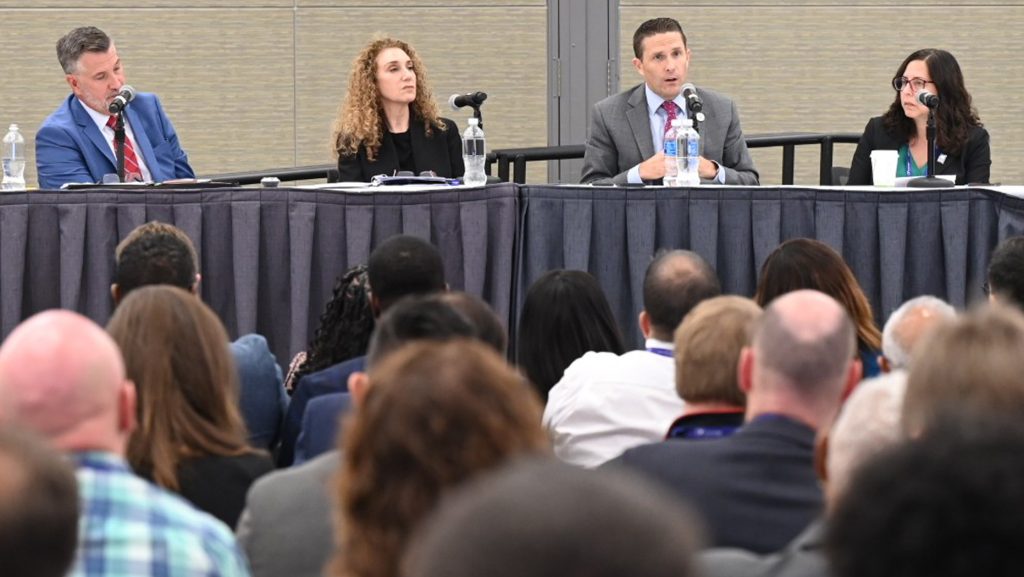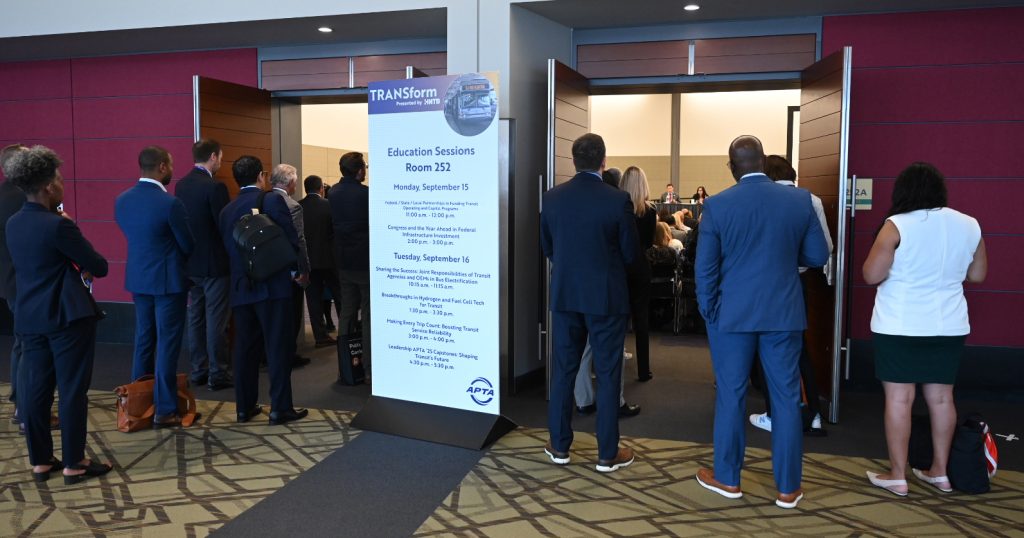Public Transit Agencies Are Building on Government Support
9/18/2025

Federal support during the COVID pandemic literally saved public transportation. Randy Clarke, general manager and CEO, Washington Metropolitan Area Transit Authority (WMATA), speaking at the packed Federal / State / Local Partnerships in Funding Transit Operating and Capital Programs panel at APTA’s TRANSform, said “We had great federal support, all of us.… It’s not a little deal what they did for us.”
Joining Clarke on the panel to describe what is next in government partnerships were Stacy Miller, CEO, Miami-Dade Dept. of Transportation and Public Works; and Richard Farr, executive director, Central Pennsylvania Transportation Authority (dba rabbittransit). They discussed with moderator Julie Kirschbaum, director of transportation, San Francisco Municipal Transportation Agency, how they are “managing through difficult fiscal times, sharing the importance of being strong public stewards of funds, and how they and their agencies are working best together.”
WMATA recently received approval for a fare increase and enhanced fare-enforcement authority, Clarke said. By focusing on efficiency, the agency realized $500 million in savings, and Clarke said efficiency remains a priority, especially capital spending. Once a project is built, he said, “service costs nothing… We’ve got to make better use of the assets that we’re spending big, big money to own and operate.”

Miller’s agency, facing a $400 million budget gap and some $2 billion in unfunded public works needs, proposed its first fare increase in 13 years. The department, now the 10th largest transit provider in the U.S., receives funding from a half-cent transportation surtax and has requested another half-cent this year, and is considering a capital bond in response to a straw poll showing “overwhelming” voter demand for more transit.
“We’re really excited about what we see as the future in Miami Dade, but we know we’re all working together to solve those financial challenges,” she added.
Pennsylvania transit agencies saw substantial funding as a result of 2007 legislation said Farr. “Act 44 really overhauled the entire program, created a new funding formula. Our state operating funds doubled overnight.” Funding gradually subsided and by 2024, while still “a well-funded program,” it was hundreds of millions short of the need.
Public transit agencies are receiving authorization to use already-committed capital funds for operations instead, which, Farr said, is “good and bad,” simply pushing the problem out two years. However, he said, “We could not be happier with the amount of effort Gov. Shapiro has put into public transportation.”
View more images from TRANSform.